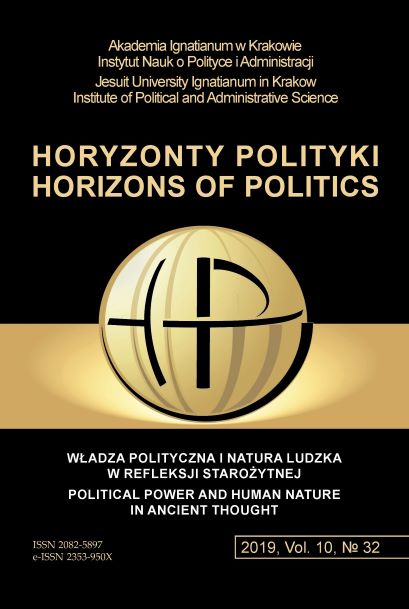Gilgamesh, Political Power, and Human Nature
Gilgamesh, Political Power, and Human Nature
Author(s): Piotr ŚwierczSubject(s): Studies of Literature, Political Philosophy, Ancient World
Published by: Uniwersytet Ignatianum w Krakowie
Keywords: Gilgamesh; Enkidu; human nature; political power; political philosophy;
Summary/Abstract: RESEARCH OBJECTIVE: The objective of the article is an analysis of the Epic of Gilgamesh from the perspective of political philosophy. THE RESEARCH PROBLEM AND METHODS: The main research problem undertaken in this article is the problem of human nature and its connection with political power in light of the Sumero-Akkadian Epic of Gilgamesh. The article is based on an analysis of the source text (the Epic of Gilgamesh) in the English version by Andrew George, with the secondary literature also taken into consideration. THE PROCESS OF ARGUMENTATION: The point of departure is a justification of the subject undertaken here, with a reference to Leo Strauss’ political philosophy. Next, three key aspects of the subject matter are analyzed: the humanization of Enkidu, the search for immortality, and the conception of political power. RESEARCH RESULTS: The main result of the scientific analysis is the indication of themes concerning the significance and understanding of human nature and their relationship to the concept of political power that formed in Mesopotamia. CONCLUSIONS, INNOVATIONS, AND RECOMMENDATIONS: In the conclusions, the author indicates the unmistakable presence of a notion of human nature in Sumero-Akkadian reflection, as well as the connection between this notion of human nature and a paradigm of political power. The author also points to a religious aspect crucial for understanding these concepts.
Journal: Horyzonty Polityki
- Issue Year: 10/2019
- Issue No: 32
- Page Range: 31-46
- Page Count: 16
- Language: English

